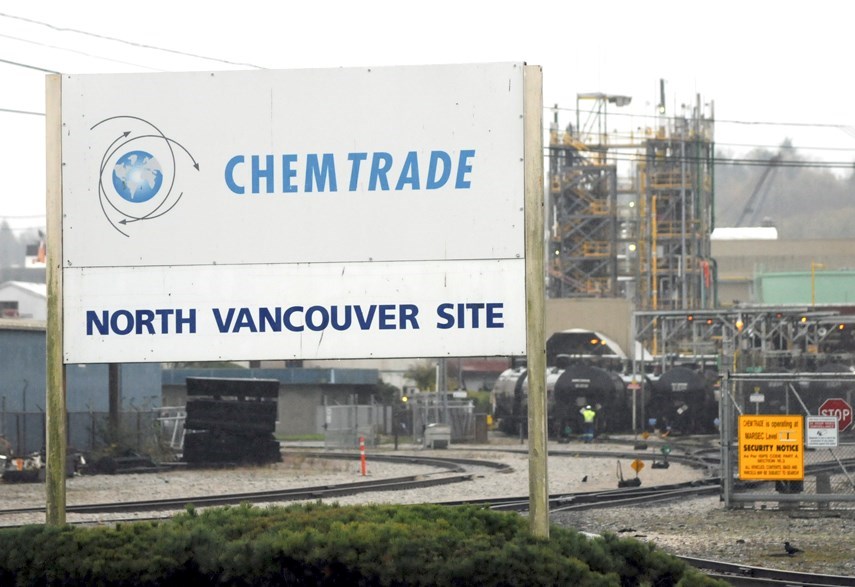An emergency siren and warning of a chlorine leak from a North Vancouver chemical plant on Wednesday morning was a false alarm, according to North Shore Emergency Management.
Around 9:50 a.m. residents received emergency notifications on their phones from the Alertable app reporting a release of chlorine from Chemtrade Electrochem in the Maplewood area. The message stated the leak was confined to the facility and that it posed no threat to the public, despite the possible smell of the noxious chemical in the air.
That message was sent in error though.
At the time, Chemtrade was conducting its annual internal safety drill, which inadvertently triggered the message to be sent via Alertable.
“To be clear, we did not have a chemical release at the North Vancouver facility and there is no risk to the community or surrounding area,” a statement released by the company later on Wednesday morning read. “Chemtrade would like to apologize to the local community for the error and thank North Shore Emergency Management for their quick response and professionalism in handling the response.”
Amy Jonsson, senior manager of corporate communications for Chemtrade, said the company doesn’t yet know why their exercise caused an actual alert to be sent out, but she said they will be looking into that over the coming days.
Throughout the site, there are 72 sensors that detect any chemical in the air at a level of one part per million. The moment any of those are triggered, Chemtrade operators are immediately notified so they can shut down that area of the plant and begin containing the spill.
“We've operated safely for years. We have extensive safety equipment and protocols in place,” Jonsson said.
The facility produces chlor-alkali, a compound used to create caustic soda, hydrochloric acid, and bleach for industrial clients across North America.
Exposure to low concentrations of chlorine gas can cause eye, nose and throat irritation. At higher levels, it can lead to respiratory distress similar to asthma. Prolonged exposure to chlorine in the environment at more than 400 parts per million can be fatal, according to the U.S. National Library of Medicine.
Officials from North Shore Emergency Management, which oversees disaster response and preparedness for the entire North Shore, did not know Chemtrade was conducting the drill at the time, said director Emily Dicken.
“When we got the notification, we actually went into response mode and I immediately stood up our risk response procedures,” she said.
That included reaching out to District of North Vancouver Fire and Rescue Services and Chemtrade and preparing to send a shelter in place warning if one was needed.
When they confirmed within a span of about two minutes that the first message was an error, Dicken said they prepared a second notification to go out with correct information.
In an actual leak, chlorine spreads along the ground and doesn’t permeate through barriers. Had Wednesday’s alert been for a real threat, NSEM would have likely sent an alert urging people to shelter in place, while crews cordoned off access to the area.
Dicken said the Alertable app has been downloaded upwards of 18,000 times by North Shore residents since it launched in 2021,
Despite Wednesday’s mix up, Dicken said the app is still the most reliable way of getting need-to-know information in the fallout from a disaster. And a false alarm is better than no warning at all, she added.
“It is the way that we are going to be sending out public notifications on disaster events. And it's something that we are highly trained in and it’s something that we take very seriously,” she said. “It's unfortunate today that there was this oversight or error, but I think it doesn't negate the importance of the tool.”
To download the app, visit North Shore Emergency Management.




